
Sales of ivory and a possible ban on trading bluefin tuna top the agenda for the two-week CITES meeting that opens this weekend in Doha, Qatar.
CITES – the Convention on International Trade in Endangered Species – will set a precedent if it votes to ban trading in a lucrative fish such as bluefin.
The US and EU back the proposal, but Japan is set against.
Conservation groups are also hoping for increased protection on sharks, coral, polar bears, lizards and amphibians.
African disunity
The ivory and tuna issues are both potentially controversial.
International ivory trading was banned in 1989.
But countries considered to have well-managed stocks of elephants and reliable systems for tracking tusks have three times been allowed to sell consignments from government stockpiles.
Zambia and Tanzania are now seeking permission for a further sale.
But other African nations led by Kenya and Mali want a 20-year ban on all ivory exports. They argue that the legal trade stimulates poaching, which has been on the rise in recent years.
“To permit any step towards further trade in ivory makes no sense whatsoever – it flies in the face of every basic conservation principle and is contrary to the agreement made at the last meeting,” said Jason Bell-Leask from the International Fund for Animal Welfare (Ifaw).
However, the organisation Traffic – which is charged with collecting data on illegal elephant killings and ivory smuggling – maintains there is no proof of a link.
Data from its Elephant Trade Information System (Etis) shows that the rate of seizures of illegal ivory began rising well in 2004, well before the last one-off legal ivory sale was authorised in 2007.
And the previous one-off sale, in 1999, co-incided with a fall in seizures.
Etis manager Tom Milliken argues that African governments wanting to stem the rising ivory tide would be better advised to step up enforcement efforts against poachers and traders.
And China, the principal market for illegal ivory, should live up to its promises to act against smuggling gangs, he says.
Otherwise, he says: “Arguments over the impacts of one-off sales will continue to divert attention away from the real problem: finding ways to stop the flow of illicit ivory at source.”
Tuna battles
The chances of CITES voting to ban the international trade in Atlantic bluefin tuna increased markedly during the week when – after months of wrangling – the EU decided to give its support.
The bloc includes several nations with tuna fleets in the Mediterranean, the main fishing ground.
Conservation groups argue that the ban is needed because governments involved in the industry have allowed overfishing to such an extent that the species’ survival is in some doubt.
They also argue that a pause in fishing will eventually lead to higher catches.
“The goal is not to ban trade indefinitely, but to suspend international trade until the species recovers sufficiently to enable international trade to resume,” said Sue Lieberman, director of international policy with the Pew Environment Group.
“This is a key conservation moment – whether the governments here will vote for the conservation of bluefin tuna, or will allow commercial fishery interests to prevail, further causing over-fishing and continued decline of this iconic species,” she told BBC News from Doha.
Japan has indicated that it would opt out of a trade ban, as it is entitled to do under CITES rules.
But if all other tuna fishing countries went along with it, there would be no supply of tuna to import.
Conservation groups are urging the EU and US to make sure that other tuna fishing countries, particularly North African states bordering the Mediterranean, do not opt out.



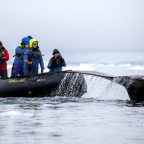
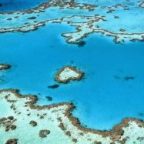
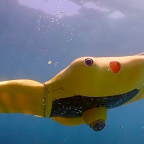
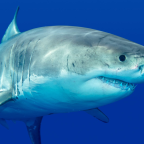

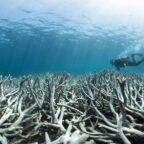
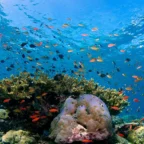


Social Profiles